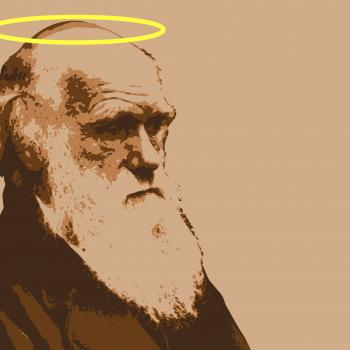Nicholas C. DiDonato
All too often, people assume that Christians don’t know or don’t want to know science because science conflicts with their beliefs: Christianity acts as a force for science illiteracy. However, research by sociologist John Evans (University of California, San Diego) suggests otherwise. His findings conclude that (1) Christians know just as much science as the non-religious; (2) conservative Christians favor their religious beliefs over science when the two “conflict” but, from their perspective, the two in fact are not in conflict; and (3) conservative Protestants oppose scientists’ influence in political issues when the scientists disagree with their moral values.
Evans argues that one must distinguish among Christian groups and try to pinpoint the source of conflict with science. He divides Christians into Protestants and Catholics, and further subdivides Protestants into mainline, fundamentalist, and evangelical. According to Evans, mainline Protestants accept Enlightenment-style rationality, fundamentalists interpret every word of the Bible as literally true, and evangelicals reject the Enlightenment’s theory of rationality but also reject a strict literal interpretation of the Bible. The term “conservative Protestant” includes evangelicals and fundamentalists. Evans speculates that Catholics make an interesting case because although the Catholic Church accepts evolution, a time lag exists between intellectual acceptance at the high levels and popular acceptance at the level of the average Catholic.
As for pinpointing the source of the religion-science conflict for American Christians, Evans considers three hypotheses. First, he tests the popular theory that because religion and science have different methods for knowing about the natural world, religious people will trust their religious method and thus have no need for science (or they fear the conclusions the scientific method might bring). He predicts that this hostility to the pursuit of scientific knowledge (compared to the non-religious) will occur…but only for fundamentalists. Second, Evans hypothesizes that conservative Protestants and Catholics, as compared to the non-religious, will express less belief in scientific claims only when science conflicts with alternative religious claims. Third, religion and science may conflict at the level of moral values rather than knowledge, and so Evans theorizes that, compared to the non-religious, conservative Protestants and Catholics will be more opposed to scientists influencing moral issues than non-moral issues.
To test his three hypotheses, Evans relies on data from the 2006 General Social Survey (GSS), specifically its special subsection on science. He controls for demographic variables that would affect a person’s exposure to science (education, gender, age, income, etc.). Participants must answer a variety of scientific quiz questions, some that have a Christian (depending on one’s Christianity) alternative (e.g., human beings, as we know them today, developed from earlier species of animals) and some that do not (e.g., “electrons are smaller than atoms”). The survey also tested the participants’ knowledge of the scientific method, especially the importance of empirical observation, and checked for basic science literacy (e.g., what do the results of a scientific study mean? What does a one-in-four chance mean?). Participants also self-evaluated their scientific knowledge and indicated how many college-level science courses they had enrolled in. Finally, Evans focused on three issues to test moral motivations for distrusting science: global warming, stem cell research, and genetically modified foods (the last one acts as a control since Americans typically do not see it as a moral issue).
The results provided quite a surprise: not only did all Christian groups have as much scientific knowledge as the non-religious but mainline Protestants knew more about science than the non-religious. It also turned out that evangelicals had taken more science classes than the non-religious (and no Christian group took less). Since fundamentalists exhibit no scientific illiteracy compared to the non-religious, Evans rejects the first hypothesis. Christianity, not even in its fundamentalist form, does not correlate with scientific illiteracy. However, all Christian groups except non-conservative Catholics disagreed with scientific conclusions when they conflicted with their religious beliefs, and conservative Protestants, but not Catholics, opposed scientists’ influence in the moral issues of global warming and stem cell research (as expected, none opposed scientific influence in genetically modified foods).
From these results, Evans concludes that the assumption that Christians, including fundamentalists, are scientifically illiterate, will scientific ignorance upon themselves, or avoid science is simply unsubstantiated. Most Christians do try to work around scientific conclusions that don’t fit their beliefs (not that there’s conflict from the Christian’s perspective because they believe that, in time, science will agree with their religion), and conservative Protestants do have a problem with scientists interfering with moral issues, but none of this stems from scientific illiteracy (quite the opposite, in fact, for the mainline and evangelical Protestants). Those who would refuse this evidence-based study and insist that Christians really are scientifically illiterate should remember that Christians aren’t the only ones capable of disregarding scientific findings they don’t like.
For more, see “Epistemological and Moral Conflict Between Religion and Science” in the Journal for the Scientific Study of Religion.












